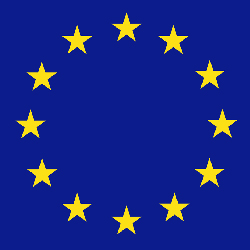Legal
EXCLUSIVE EXPERT VIEW: Get Ready For New European Succession Regime

The EU is seeking to develop a pan-European system under which cross-border succession (aka inheritance) issues can be resolved, having been previously victim to the patchwork of different national laws.
It may not be a big blip yet on wealth managers’ radar screens but an attempt by the European Union (“Brussels IV”) to harmonise how people pass on their wealth to others is likely to cause a good deal of debate and litigation. At a time when some people from countries such as Greece and France, for example, have been trying to move abroad to places with different legal codes, this is likely to prove a tricky issue. James Ward, a partner at the UK law firm Seddons, has written this commentary on the subject. The views are the author's own but the editors are grateful for the insights and invite readers to respond with their own views.
European Union citizens have been able to enjoy free movement within the EU for many years, following the sun, jobs, loved ones, etc, across the continent. The ease of such freedom of movement has not been matched, however, by the expensive, varied and complicated succession planning issues that arise upon gifting and death.
This is very much down to the entirely different succession laws that exist across the world and not just within the EU. Given that there are around 450,000 cross-border deaths that occur every year, this was certainly an area of EU law that needed simplifying.
Brussels IV is meant to fix such problems and harmonise the approach to succession across the EU. This should make it clearer for practitioners when advising clients who have international elements to their succession, whether they are those of nationality or foreign assets.
The first point of note is that the legislation only applies across the participating states. This includes all of the EU members except Denmark, Ireland and, typically, the UK. (The UK has opted out due to concerns about clawback provisions in other member states in relation to lifetime gifts following the forced heirship regimes.)
Jurisdiction and applicable law
The main mission of Brussels IV is to make sure that the court of
a single jurisdiction will apply a single law to the entire
estate of the individual. This would provide total clarity and
reduce the opportunity for conflict.
- The default position and most important criterion is that the law of the state in which the deceased was “habitually resident” applies to succession of assets across the Brussels IV zone;
- This default position can be overturned if there is a jurisdiction to which the deceased was “manifestly” more closely connected to;
- Or, the deceased can elect the law of his nationality to apply to all the assets across the Brussels IV zone and if the deceased has more than one nationality he may choose the law of any one of them. Such selection should be made in the deceased’s will or similar document.
Provided the law that governs succession falls within one of these categories, it does not need to be that of an EU member state, meaning that assets held in a participating state could pass in accordance with the law of another jurisdiction entirely.
European certificate of succession
Those who are administering an estate will be able to apply
for an ECS, which is intended to replace the standard post-death
legal instruments across the EU; effectively it will become a
standard European grant of probate. It will set out the key
details of the deceased, the estate and the beneficiaries and
should be able to be used to transfer and dispose of assets
across the EU. The premise behind it is to stop the need for
multiple grants across Europe, which should save time and money.
Issues - no UK, Ireland or Denmark
As the UK, Ireland and Denmark are not parties, the effect
of the regulation is uncertain. However, it is clear that
residents in any of these countries with assets in a
participating Brussels IV state will be affected. So a UK-based
client, who is a French national with money in Italy, can rely on
English law if he wishes.
By the same token, an EU national with real estate in the UK will not be able to apply the law of their country over English law, unless the courts agree.
What does habitual residence mean? This is not defined by Brussels IV and may become a complex issue based on fact with limited guidance from other EU laws.
The legal effect of the matrimonial property regimes (existing in mainland Europe) is not covered by Brussels IV.
Anyone with links to the UK, Ireland and Denmark will not be able to benefit from the ECS unless it replaces the grant of probate, which is unlikely. However, will it provide enough information to not need an affidavit of foreign law accompanying it.
It is possible for a Brussels IV state to refuse to apply the law of another state, if such an action would be incompatible with public policy.
Comment
If the UK is considered a member state for the purposes of Brussels IV, it could be possible for any EU national being habitually resident in the UK to overturn the forced heirship laws on the continent. However, if the UK is considered a third-party state then only UK nationals are likely to be able to ignore the forced heirship rules on their property based in the Brussels IV zone. It will be interesting to see how this plays out, and if Brussels IV becomes a tool to overturn forced heirship then do not be surprised if we see the use of the public policy veto which can be used by any Brussels IV state to refuse to apply the law of another state.